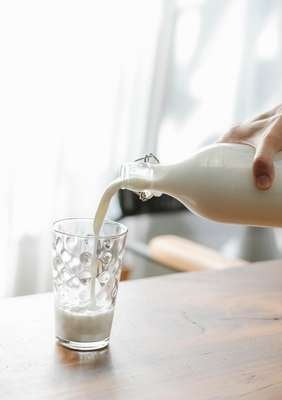Milk prices have plummeted to their lowest prices since 2011. What does it mean?
By
Danielle F.
- Replies 16
The cost of living can be a real concern, especially for those who are enjoying their golden years on a fixed income.
That's why price drops in everyday essentials are usually met with a sigh of relief.
Yet, sometimes, a bargain is not always as straightforward as it seems.
Milk prices at major Australian supermarkets recently dived and reached prices seen in 2011.
Coles, Woolworths, and ALDI have all reduced milk prices, with a litre of generic fresh milk now costing about $1.55.
This was a significant drop from previous prices and marked the lowest milk cost in over a decade.
On the surface, this is fantastic news for consumers. After all, who would not want to save a few cents on a staple item?
However, this price drop sparked concerns among the people who work tirelessly to produce milk—the dairy farmers.
Farmers feared that they could be on the brink of another 'milk war'—an event when the last major price battle between retailers saw milk prices slashed to $1 per litre.
Dairy Farmers Victoria President Mark Billing voiced his concerns that this aggressive discounting could devalue the product and push farmers to the financial brink.
'It's extremely frustrating, particularly in the environment we're in,' Mr Billing stated.
'Margins are really, really tight, and it's putting a lot of pressure on farm management.'
The complexity of the situation added up after Coles and Woolworths underwent legal scrutiny for their pricing practices.
The Australian Competition and Consumer Commission (ACCC) alleged that these supermarkets misled consumers with discount pricing claims on hundreds of products and launched legal action against both companies.
Despite the legal battles, the said supermarkets emphasised that they have not changed the prices they pay to dairy farmers.
Woolworths claimed they have passed on savings from milk processors to customers.
Meanwhile, Coles stated that it bought supplies directly from farmers for its brand milk and has kept the price it pays them the same.
ALDI also asserted its commitment to fair pricing for suppliers.
What does this mean for the dairy industry and consumers?
The price drop came at a time when milk production in Australia was at its lowest in 30 years, and dairy imports were on the rise.
This uncertainty around pricing left many farmers feeling exhausted and undervalued.
Victoria, Australia's largest milk-producing state, reported that the number of dairy businesses plummeted from 7,409 to just 2,796 today.
Last year, eight per cent of the state's dairy farmers have closed shop.
So, while shoppers might save a few cents at the checkout, it's essential to consider the bigger picture.
The sustainability of the dairy industry is crucial not just for the farmers but for the milk supply's quality and security.

Have you noticed the drop in milk prices at your local supermarket lately? Do you think about where your milk comes from when you're shopping? We would love to read your thoughts and opinions in the comments below.
That's why price drops in everyday essentials are usually met with a sigh of relief.
Yet, sometimes, a bargain is not always as straightforward as it seems.
Milk prices at major Australian supermarkets recently dived and reached prices seen in 2011.
Coles, Woolworths, and ALDI have all reduced milk prices, with a litre of generic fresh milk now costing about $1.55.
This was a significant drop from previous prices and marked the lowest milk cost in over a decade.
On the surface, this is fantastic news for consumers. After all, who would not want to save a few cents on a staple item?
However, this price drop sparked concerns among the people who work tirelessly to produce milk—the dairy farmers.
Farmers feared that they could be on the brink of another 'milk war'—an event when the last major price battle between retailers saw milk prices slashed to $1 per litre.
Dairy Farmers Victoria President Mark Billing voiced his concerns that this aggressive discounting could devalue the product and push farmers to the financial brink.
'It's extremely frustrating, particularly in the environment we're in,' Mr Billing stated.
'Margins are really, really tight, and it's putting a lot of pressure on farm management.'
The complexity of the situation added up after Coles and Woolworths underwent legal scrutiny for their pricing practices.
The Australian Competition and Consumer Commission (ACCC) alleged that these supermarkets misled consumers with discount pricing claims on hundreds of products and launched legal action against both companies.
Despite the legal battles, the said supermarkets emphasised that they have not changed the prices they pay to dairy farmers.
Woolworths claimed they have passed on savings from milk processors to customers.
Meanwhile, Coles stated that it bought supplies directly from farmers for its brand milk and has kept the price it pays them the same.
ALDI also asserted its commitment to fair pricing for suppliers.
What does this mean for the dairy industry and consumers?
The price drop came at a time when milk production in Australia was at its lowest in 30 years, and dairy imports were on the rise.
This uncertainty around pricing left many farmers feeling exhausted and undervalued.
Victoria, Australia's largest milk-producing state, reported that the number of dairy businesses plummeted from 7,409 to just 2,796 today.
Last year, eight per cent of the state's dairy farmers have closed shop.
So, while shoppers might save a few cents at the checkout, it's essential to consider the bigger picture.
The sustainability of the dairy industry is crucial not just for the farmers but for the milk supply's quality and security.
Key Takeaways
- Milk prices at Coles, Woolworths, and ALDI have dropped to their lowest since 2011, raising concerns of a new 'milk wars'.
- Dairy farmers expressed their worries that the reduced milk prices could devalue their products and threaten their livelihoods.
- The Australian Competition and Consumer Commission (ACCC) recently took legal action against Coles and Woolworths over misleading discount pricing claims.
- There has been a significant reduction in the number of dairy farms in Victoria as farmers face financial pressure and an industry at its lowest production in 30 years.








